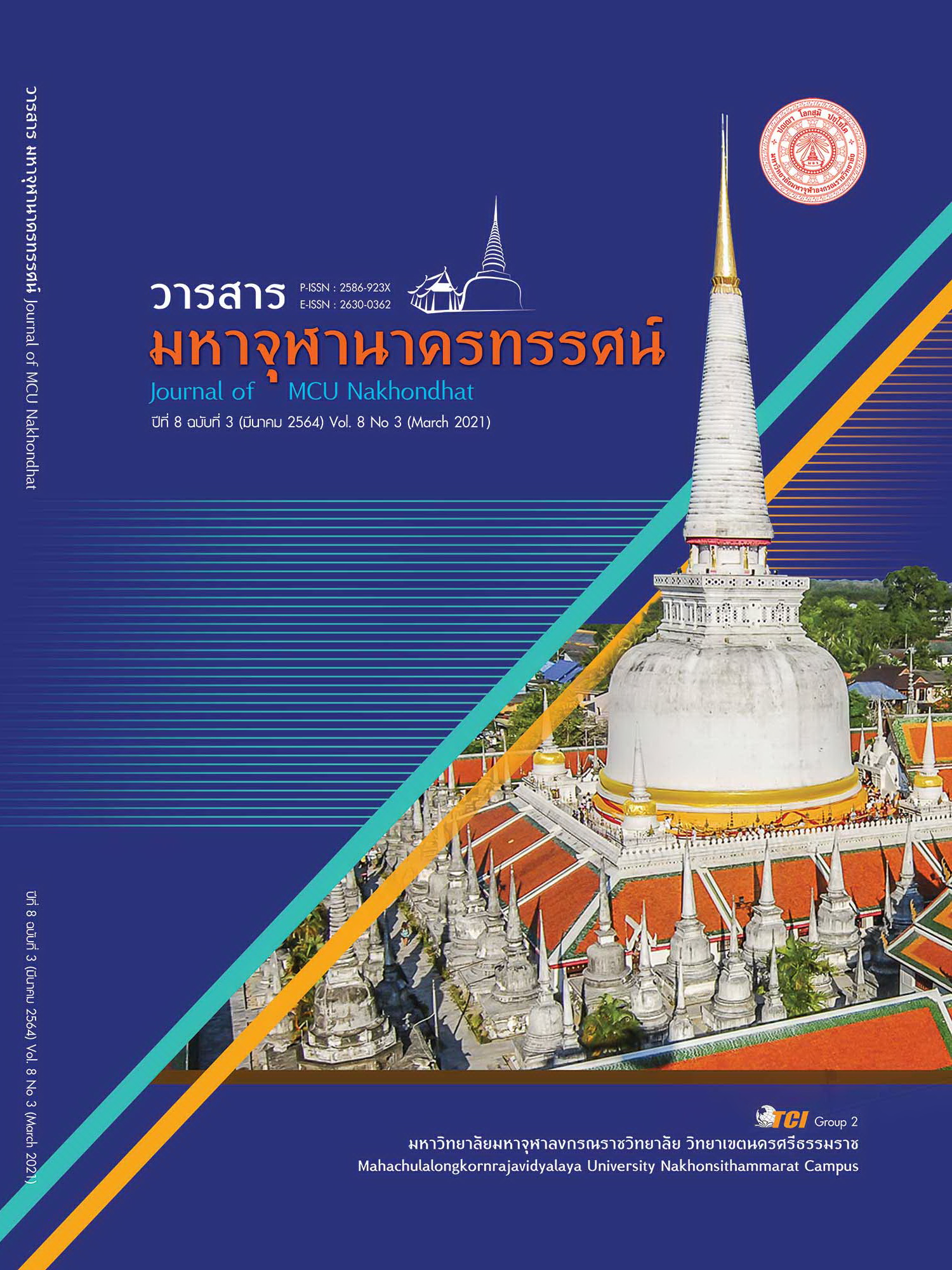ONLINE LEARNING MANAGEMENT MODEL OF INDUSTRIAL STUDENTS PROGRAM IN THE NEW NORMAL DURING COVID - 19 PANDEMIC
Main Article Content
Abstract
This article was written for presenting the concept global crisis of the coronavirus, or COVID - 19, has led to a new way of life in society, especially in education. This is considered an important opportunity to develop a new learning model with the use of various technologies to play a greater role. This article aims to present the concept of an online teaching management model for industrial technicians on a new normal. During the COVID - 19 Crisis With literature review and research And direct experience from teaching and learning management It was presented in 5 key areas: 1) effective higher education management 2) online teaching and learning management concept 3) effective higher education management 4) teaching and learning policy of Office of the Vocational Education Commission and 5) the online teaching and learning model in industrial technicians by this model, there are 6 steps in teaching and learning in each unit. Or each teaching session consists of steps leading into the lesson Process of theoretical narrative Learning activity steps The procedure concludes the lesson. And self - research steps. Developing and finding suitable models for teaching and learning during the COVID - 19 Crisis This time it is one way to help drive education without disruption. In the midst of various critical situations that may arise in the future and more importantly, this opportunity is the application of digital systems for education to be as effective as possible for learners, which will lead to the creation of useful digital skills in the future
Article Details
References
ชัยชนะ มิตรพันธ์. (2563). เรียกใช้เมื่อ 1 มกราคม 2564 จาก ปรับไลฟ์สไตล์ชีวิตใหม่รับ New Normal หลังวิกฤตโควิด - 19: https://www.etda.or.th/content/new-normal-after-covid-19.html
เทื้อน ทองแก้ว. (2563). การออกแบบการศึกษาในชีวิตวิถึใหม่ (Design - Based New Normal): ผลกระทบจากการแพร่ระบาด COVID - 19. วารสารคุรุสภาวิทยาจารย์, 1(2), 1-10.
ธนาคาร คุ้มภัย และคณะ. (2563). รูปแบบการจัดการเรียนการสอนเรื่องเทคโนโลยีอินเทอร์เน็ตของสรรพสิ่งผ่านการเรียนรู้แบบโครงงานเป็นฐาน. วารสารวิชาการสถาบันการอาชีวศึกษาภาคใต้ 1, 5(1), 33-41.
บุญทิพย์ สิริธรังศรี. (2563). การจัดการเรียนการสอนออนไลน์สู่กรอบมาตรฐานวิชาชีพการสอนและสนับสนุนการเรียนรู้ระดับอุดมศึกษา. วารสารวิชาการราชวิทยาลัยจุฬาภรณ์, 2(3), 1-17.
ปราโมทย์ สุขศิริศักดิ์ และคณะ. (2563). การจัดการศึกษาในสถานการณ์การแพร่ระบาดของเชื้อไวรัสโคโรนา 2019: กรณีศึกษาโรงเรียนนายเรืออากาศนวมินทกษัตริยาธิราช. วารสารพยาบาลทหารบก, 21(2), 44-52.
เรณุมาศ มาอุ่น. (2559). การจัดการเรียนการสอนในระดับอุดมศึกษาอย่างมีประสิทธิภาพ. วารสารเทคโนโลยีภาคใต้, 9(2), 169-176.
วิทยา วาโย. (2563). การเรียนการสอนแบบออนไลน์ภายใต้สถานการณ์แพร่ระบาดของไวรัส COVID - 19: แนวคิดและการประยุกต์ใช้จัดการเรียนการสอน. วารสารศูนย์อนามัยที่ 9, 14(34), 285 - 298.
สุเทพ แก่งสันเทียะ. (2563). ‘สอศ.’ เชื่อ ‘วิทยาลัย - ครู’ จัดการเรียนการสอนช่วงโควิดได้ไม่มีปัญหา: เรียกใช้เมื่อ 1 มกราคม 2564 จาก https://www.matichon.co.th/education/news_2517881
สุวิทย์ เมษินทรีย์. (2563). โลกเปลี่ยน คนปรับ เตรียมคนไทยเป็นมนุษย์ที่สมบูรณ์ในโลกหลังโควิด - 19:เรียกใช้เมื่อ 1 มกราคม 2564 จาก https://waa.inter.nstda.or.th/stks/pub/2020/20200506-2-the-world-changes-covid19.pdf
Bill, P. (2010). Three Principles of Effective Online Pedagogy. J Asynchronous Learn Netw, 14(1), 103-116.
Gagne R. M. et al. (1992). Principles of Instructional Design. New York: Holt, Rinehart, & Winston.
Herring, M. C. et al. (2016). Handbook of Technological Pedagogical Content Knowledge (TPACK) for Educators. (2nd Edition). UK: Routledge.
Schwenger. B. (2018). Creating blended learning experiences requires more than digital skills. Retrieved January 1, 2021, from: https://ojs.aut.ac.nz/ pjtel/article/view/46


